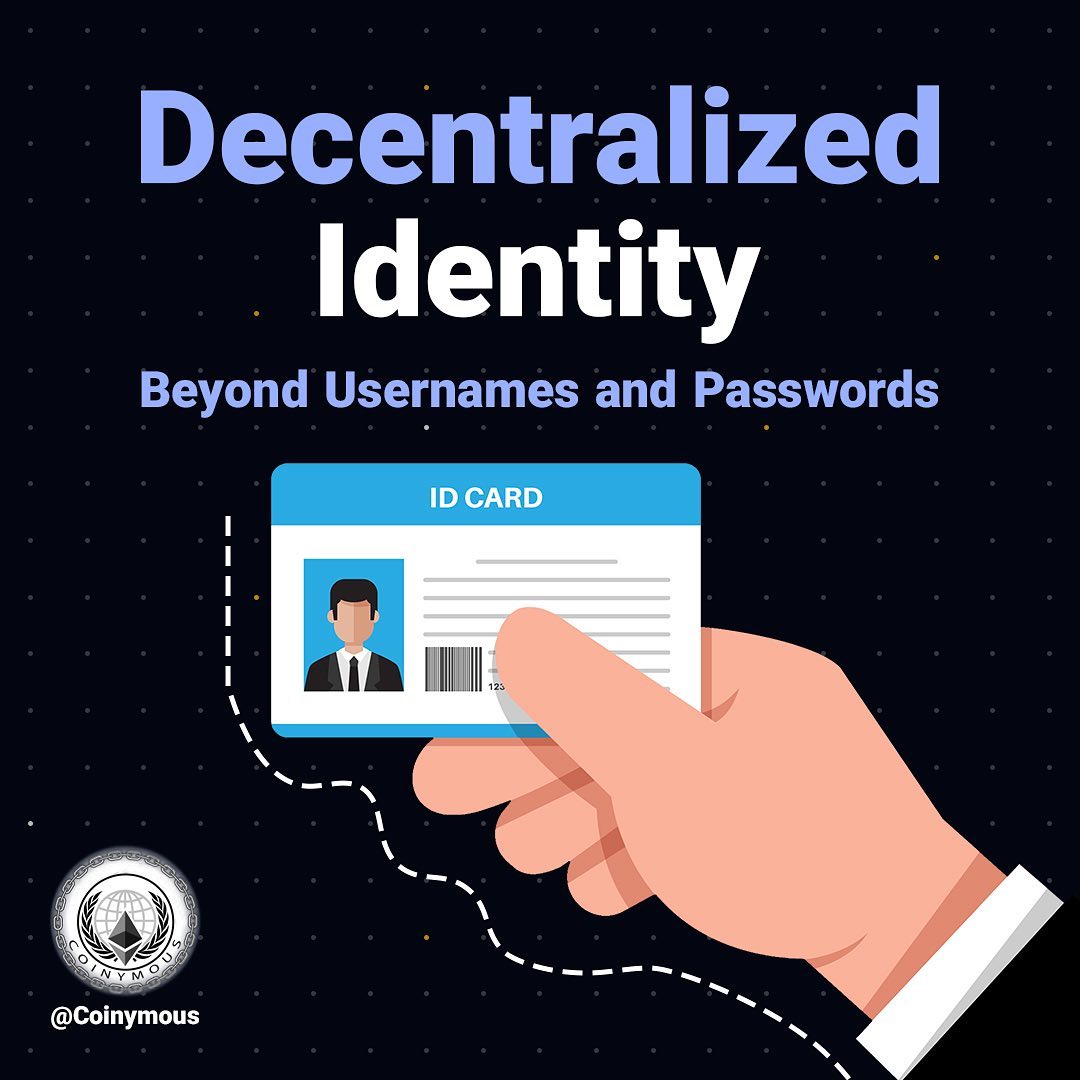Decentralized Identity: Beyond Usernames and Passwords 🔑
Decentralized identity refers to a system where individuals have control over their own personal information and can choose how it is used, eliminating the need for traditional passwords and usernames. It offers a more secure and private way of managing digital identities in an increasingly connected world.

Introduction
The age-old method of using usernames and passwords to access digital services is showing its limitations in an increasingly interconnected and data-driven world. Enter decentralized identity, a groundbreaking concept that has the potential to revolutionize how we authenticate ourselves and interact online. In this blog post, we'll delve into the world of decentralized identity, its significance, benefits, and how it's reshaping the landscape of digital security.
The Challenges of Traditional Identity Systems
The familiar username and password combination has long been the standard for online authentication. However, this approach has several drawbacks:
-
Security Vulnerabilities: Passwords can be easily guessed, stolen, or hacked, putting sensitive information at risk.
-
Password Fatigue: Managing numerous passwords for different accounts can be overwhelming and leads to poor password hygiene.
-
Centralized Data: Traditional identity systems often rely on centralized databases, making them attractive targets for cybercriminals.
Decentralized Identity: A Paradigm Shift
Decentralized identity flips the script by placing the control of identity back into the hands of the individual. Here's how it works:
-
Self-Sovereign Identity: Decentralized identity systems empower individuals to create and control their digital identities. Users have full ownership over their identity information.
-
Distributed Ledger Technology: Many decentralized identity platforms use blockchain or similar distributed ledger technologies to store and verify identity data securely.
-
Selective Disclosure: With decentralized identity, you only share necessary information for a specific transaction, reducing the exposure of sensitive data.
Benefits of Decentralized Identity
-
Enhanced Security: Decentralized identity systems are inherently more secure, reducing the risk of identity theft, data breaches, and unauthorized access.
-
Privacy: Users have greater control over their personal information, sharing only what's necessary while keeping the rest private.
-
Convenience: With decentralized identity, users can streamline the authentication process, eliminating the need to remember numerous usernames and passwords.
-
Interoperability: These systems enable seamless interaction across various platforms and services without the need for multiple logins.
Real-World Applications
-
Digital Identity: Decentralized identity can provide individuals with a universally recognized digital identity, making access to services, travel, and financial transactions more seamless.
-
Secure Authentication: Businesses can utilize decentralized identity for secure employee authentication and access control.
-
User Verification: Platforms can use decentralized identity to verify users' credentials without accessing their private information.
Challenges and Considerations
While the promise of decentralized identity is significant, challenges like user adoption, regulatory compliance, and integration with existing systems need to be addressed for widespread implementation.
The Future of Digital Identity
Decentralized identity is poised to transform the way we prove who we are in the digital world. By giving individuals more control over their personal information, we can create a more secure, private, and user-centric online experience.
Conclusion
As our digital lives become increasingly intertwined with technology, the need for more secure and user-centric identity solutions is paramount. Decentralized identity systems hold the potential to redefine how we authenticate ourselves online, offering a new level of security, privacy, and convenience. With the digital landscape evolving rapidly, embracing decentralized identity might just be the key to a safer and more connected future.
Are you ready to take control of your digital identity? Stay tuned for more insights and updates on the exciting world of decentralized identity!